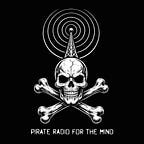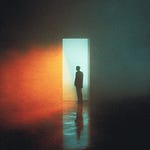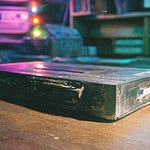Step into a black coffin filled with warm saltwater. Float until your body disappears. Wait until your thoughts collapse. What’s left? Just awareness. Just the raw hum of consciousness.
That’s where John C. Lilly began. He wasn’t a mystic, not at first. He was a physician, a neuroscientist, a man in a white lab coat at the National Institutes of Health. He mapped the brain with electrodes, charted nerves like a cartographer drawing borders. But beneath the sterile experiments was a restless hunger. He wanted more than measurements. He wanted to break into the operating system of the mind.
Lilly believed the brain was a biocomputer. Programs written in thoughts. Beliefs as code. Change the program and you change reality itself. To test that, he built the isolation tank. Dark, silent, weightless. A machine not for stimulation but for subtraction. And when he climbed inside, he discovered what happens when the ego dissolves, when the “I” vanishes, and the mind begins to write its own strange stories.
But Lilly didn’t stop there. He tried to talk to dolphins, convinced they were another form of intelligence, aliens swimming alongside us. He brought humans and dolphins under one roof, teaching them English, even dosing some with LSD, chasing the dream of interspecies conversation. The project ended in tragedy, scandal, and myth, but it revealed how far he was willing to go to break the walls of human isolation.
And then came the drugs. LSD first, ketamine later. Not for recreation, but as tools for programming and metaprogramming. In the tank, under ketamine, Lilly claimed to meet cosmic control systems, benevolent and hostile alike. He wrote about ECCO (the Earth Coincidence Control Office) and the Solid State Intelligence, a machine consciousness bent on erasing biology. Were these visions? Delusions? Or was he glimpsing something we still can’t name?
Whether prophet or madman, Lilly refused to live by consensus reality. He showed us that the self, the world, the rules we cling to, are softer than we think. He left us with a law that is as liberating as it is dangerous: In the province of the mind, what one believes to be true, is true, or becomes true, within certain limits.
This episode dives into John C. Lilly’s world: the tank and the ego, the dream of talking to dolphins, the descent into psychedelics, and the haunting philosophy he carried back. It’s not a safe story. It’s a story about testing the walls of reality until they bend. Or break.
Much love, David











